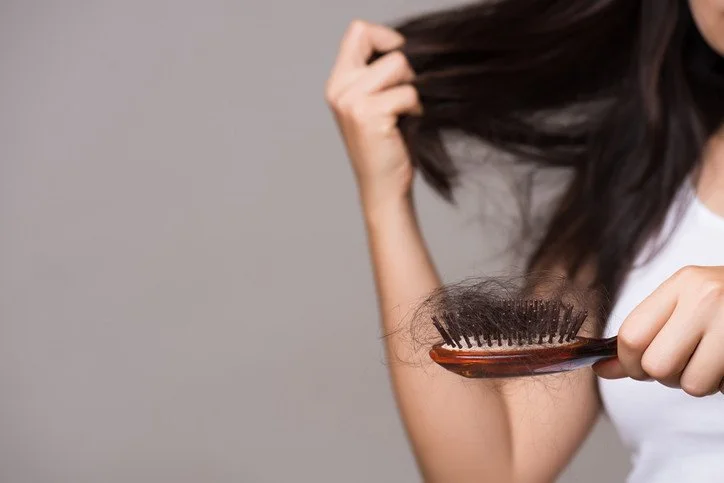Introduction:
Hair loss is a common concern that affects people of all ages and genders. While it's a natural part of the hair growth cycle, excessive hair loss can be distressing. Whether you're experiencing mild shedding or more significant hair loss, there are strategies and solutions that can help you regain control over your locks.
Understanding the Causes: To effectively combat hair loss, it's essential to understand its root causes. Hair loss can result from a variety of factors, including genetics, hormonal changes, poor nutrition, stress, and certain medical conditions. Identifying the cause of your hair loss can guide you toward the most suitable solutions.
Healthy Lifestyle Habits:
Balanced Diet: A diet rich in vitamins and minerals, especially biotin, zinc, and iron, supports hair health. Include foods like leafy greens, eggs, and fish in your diet.
Stress Management: Chronic stress can contribute to hair loss. Practice stress-reduction techniques like meditation, yoga, or regular exercise to manage stress levels.
Scalp Care: Maintain a clean and healthy scalp by using gentle, sulfate-free shampoos and avoiding harsh hair treatments.
Effective Hair Care Practices:
Gentle Styling: Avoid hairstyles that put excessive tension on your hair, like tight ponytails or braids. Be mindful of using heat-styling tools sparingly.
Regular Trims: Get regular haircuts to prevent split ends and maintain healthy hair.
Proper Washing: Overwashing can strip the hair of natural oils. Wash your hair as needed, and use a mild, sulfate-free shampoo.
Medical Interventions:
Prescription Medications: Consult a healthcare professional to discuss medications like Minoxidil and Finasteride, which can help promote hair growth.
Platelet-Rich Plasma (PRP) Therapy: This treatment involves injecting your blood's platelet-rich plasma into your scalp to stimulate hair growth.
Hair Transplant: For more severe cases of hair loss, hair transplant surgery is an option. It involves transplanting hair follicles from one part of your body to the balding areas.
Supplements:
Biotin: Biotin supplements can support hair growth and strength.
Multivitamins: A well-balanced multivitamin can help ensure you get essential nutrients for hair health.
Conclusion:
Hair loss is a challenge, but with the right knowledge and a combination of lifestyle changes, effective hair care practices, and medical interventions, you can regain control over your hair. Remember, everyone's hair loss journey is unique, so it's crucial to consult with a healthcare professional or dermatologist to develop a personalized plan to address your specific needs. With dedication and the right strategies, you can achieve a healthier, fuller head of hair.


